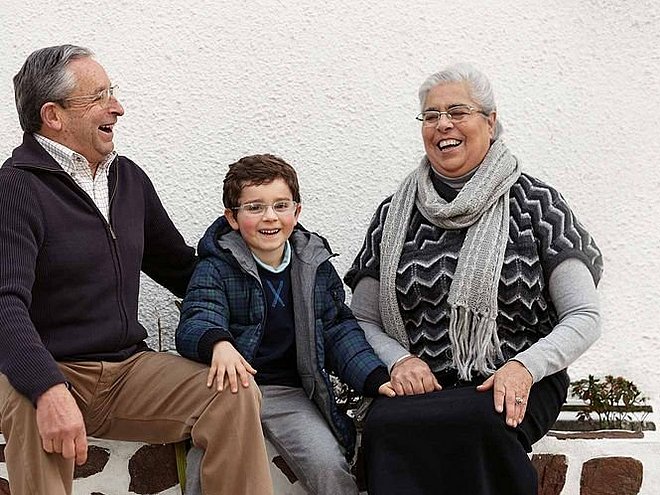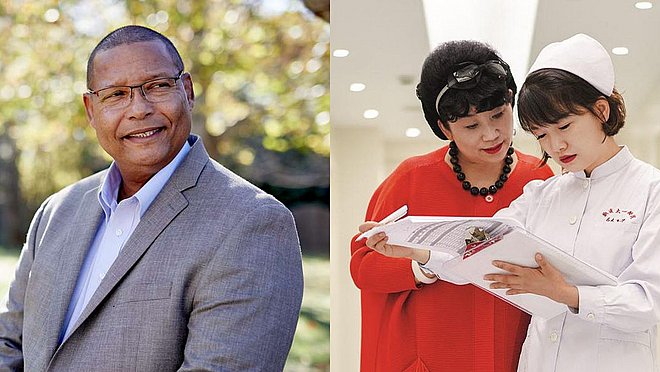
András Both, Ambassador for the Hungarian National Kidney Program
Everyone in Hungary knows András Both, or at least his voice. He is the voice of the largest private TV channel in Hungary and a great actor. But many people may not realise he is also the ambassador for the Hungarian National Kidney Program. After first undergoing dialysis and then two transplants, András Both took the time to share his experiences with us.

Farewell to my kidneys
Since 1993 or 1994, I have known that one day, I would have trouble with my kidneys. Back then, my kidney disease arose from a very simple infection. I was at work when I first noticed that something wasn’t right. During a rehearsal, I wasn’t able to stay on my feet. My co-worker took me home and we thought I just needed some rest. But that didn’t keep my wife from worrying. She insisted I see a doctor, who performed an ultrasound before diagnosing me with polycystic kidney disease. I didn’t even know what that was! My doctor referred me to a nephrologist, who told me it’s a chromosome disorder. The protocol: yearly check-ups to monitor the disease’s progression, which later turned into check-ups every six months. At first, my nephrologist reassured me I would probably not need treatment until I was 50 or 60. But life is unpredictable and in fact, I needed care earlier. Constant fatigue was bringing me down. In hindsight, I know it was due to my kidneys’ inability to filter my blood properly. In 2003, I was put on the waiting list to get a donor kidney and was told that in the meantime I needed dialysis. I also learned that the average wait time for a donor with my O blood type was longer. I wasn’t worried about the operation. I knew what to expect because my nephrologist had discussed the details with me and I decided not to stress out about something beyond my control. I also reminded myself that a notification that a kidney is available doesn’t guarantee a transplant. Multiple elements must align for the nephrologist to go through with the operation.

The first notification and surgery
Nevertheless, my wife prepared a hospital bag for me that I kept in my wardrobe. That way I was ready to go if I received a notification. And it actually happened, before I even started dialysis. "Good morning, Mr Both," the coordinator said on the phone, "this is your notification." Again, life was unpredictable! I had one hour to get to the clinic. That’s when I started to panic. Suddenly, my mind was working at lightning speed. Who should I talk to? What did I need to organise? I had to get there fast, but I didn’t know if I’d get the kidney! When there is a notification, several patients are called in and a series of tests are required. At the hospital, they took blood samples to find the most suitable recipient and after around one hour, I learned that the kidney was mine. I don’t really remember the operation. I just know it hurt all over after I woke up. Back then it was an older surgical technique and a different kind of anaesthesia. Together with the doctors and nurses, we checked if the kidney had started working: it had! Now I had to wait for another three or four days to make sure my body accepted my new kidney. When that moment arrived, I packed my bags and went home.

After the operation
Connected to the machine
My first visit to the dialysis centre wasn’t for treatment. I was there for a check-up and had a look around out of curiosity. I wanted to get out of there as quickly as possible. "Me, here?" I thought, "They can’t be serious!" But I knew that dialysis awaited me and that it would keep me alive. While on dialysis, I tried to focus on living my life and doing the things I enjoyed. At the weekend, I had more freedom, though I had to take my medication, eat right and monitor my liquid intake.
In for surgery again
The call for my second donor kidney also came unexpectedly. But this time I knew what to expect. I realised how important it was to have a good relationship with my doctor. He understood what I wanted and I followed his orders to get it, which made his job easier. Of course, a little luck played a role. You have to be healthy to have surgery: no cold, flu, or other viruses. I was lucky I wasn’t sick when I received the second notification. The surgery was easier the second time, partly because of advances in drugs and surgical techniques, and I found the operation went much smoother. Knowing what to expect made the psychological aspect easier, too. It’s been almost three years since the surgery and I go in for a check-up every six months or so.

Family life: honesty rules
Does a person with a transplant live healthier?
Since the transplant, I’ve become more health-conscious. My immune system is weaker because of the anti-rejection drugs, so I have to take care of myself. I take my prescriptions and talk to my doctor about everything. When I travel, I double-check that I have the right quantities of all my medications as well. Other than this aspect, I live the same life as everyone else, just with a little more care and a little more awareness.

